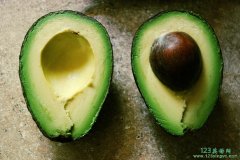(高三英语)任务型阅读
Problem: On the scale of problems, “pictures of food on the Internet” is firmly first-world. And that is almost certainly a too-generous definition of “problem.” When it comes to photographing and putting your dinner on line, I say live and let live, you know Maybe your salad was particularly inviting and pleasing that night, and I, too, have spent many an hour clicking “random” on Smitten Kitchen and salivating(流口水).
But I assume if you’re making the effort to arrange your food artfully and preserve its memory in a digital archive, you must... like food. And want it to taste good. A recent study published in the Journal of Consumer Psychology suggests that spending time focusing on images of food makes the food itself less satisfying.
Methodology: The researchers assumed that imagining enjoying something might lead to satiation -- the feeling that makes the second piece of cake taste not-quite-as-good as the first. To test this, they had some people participate in two experiments that they were told were separate -- one in which they rated how appetizing different photos of food looked, and one in which they ate some peanuts and rated how much they enjoyed them.
A separate group of people did the same experiment again, but in the photo-rating portion, some were asked to rate how appetizing the food was or to choose a preference between two foods, and some were asked to rate the brightness of the photo itself.
Results: The more photos of food people looked at, the less they enjoyed the peanuts -- if they were looking at photos of salty food. People who looked carefully at images of sweets enjoyed the peanuts more, suggesting that imagination causes satiation only if you’re imagining a similar food. In the second experiment, participants who focused on the brightness of the photos were able to enjoy the peanuts more than those who were thinking about the deliciousness of foods while they looked at the images.
Implications: You’ll probably enjoy your food more if you don’t take a picture of it, or scroll through images of cookies at work and then eat one when you get home. This also has potential implications for advertisers, who may unknowingly be giving away satiation for free when they show images of chicken wings or whatever in front of us all day long. But luckily the study provides a hint: Try not to think about the food’s taste while you take a photo -- just focus on your composition.
71. 【答案】 share
【试题分析】推理题。根据文章第一句On the scale of problems, “pictures of food on the Internet” is firmly first-world.可知很多人都喜欢把食物的照片放在网上与别人分享,故使用share sth with sb与某人分享某物的用法。
72. 【答案】 reduces/ affects/ decreases/ lessens
【试题分析】同义词转换。根据文章第二段最后一句spending time focusing on images of food makes the food itself less satisfying.可知花太多的时间来给食物拍照片会让食物不那么令人满意。也就是减少食物的满意度。故使用动词reduces或者affects/ decreases/ lessens。
73. 【答案】 appetite
【试题分析】推理题。根据第3段1,2行The researchers assumed that imagining enjoying something might lead to satiation -- the feeling that makes the second piece of cake taste not-quite-as-good as the first.可知看到食物的照片然后想象食物的味道会让我们的食物不是那么可口,减少我们的食欲。故使用名词appetite。
74. 【答案】rate
【试题分析】原词再现。根据第3段,2,3,4行To test this, they had some people participate in two experiments that they were told were separate -- one in which they rated how appetizing different photos of food looked,可知要求我们对真实的食物和所拍照片的食物进行排名。
75. 【答案】 conducted/ made/ done
【试题分析】动词短语。根据第4段第一句和最后一句A separate group of people did the same experiment again, but in the photo-rating portion, 和some were asked to rate the brightness of the photo itself.可知做了另外一个相似的实验。固定搭配conduct/make/do an experiment做实验。
76. 【答案】inviting/ attractive
【试题分析】细节题。根据第5段The more photos of food people looked at, the less they enjoyed the peanuts -- if they were looking at photos of salty food. People who looked carefully at images of sweets enjoyed the peanuts more, suggesting that imagination causes satiation only if you’re imagining a similar food.可知如果我们多看了那些食物,会让食物不太有吸引力。
77. 【答案】different
【试题分析】推理题。根据People who looked carefully at images of sweets enjoyed the peanuts more, suggesting that imagination causes satiation only if you’re imagining a similar food.可知看不同的食物的照片并不能让我们吃得更饱。
78. 【答案】 enables/ allows/ causes
【试题分析】推理题。根据In the second experiment, participants who focused on the brightness of the photos were able to enjoy the peanuts more than those who were thinking about the deliciousness of foods while they looked at the images.可知那些聚焦于照片的人会让人想吃更多。
79. 【答案】 Avoid
【试题分析】根据文章最后一句Try not to think about the food’s taste while you take a photo -- just focus on your composition.可知要避免在吃东西之前去想那些照片。
80. 【答案】promote
【试题分析】推理题。根据文章最后一段This also has potential implications for advertisers, who may unknowingly be giving away satiation for free when they show images of chicken wings or whatever in front of us all day long.可知做广告的人应该把商业广告做得更好来宣传他们的产品。
你会喜欢下面的文章?



